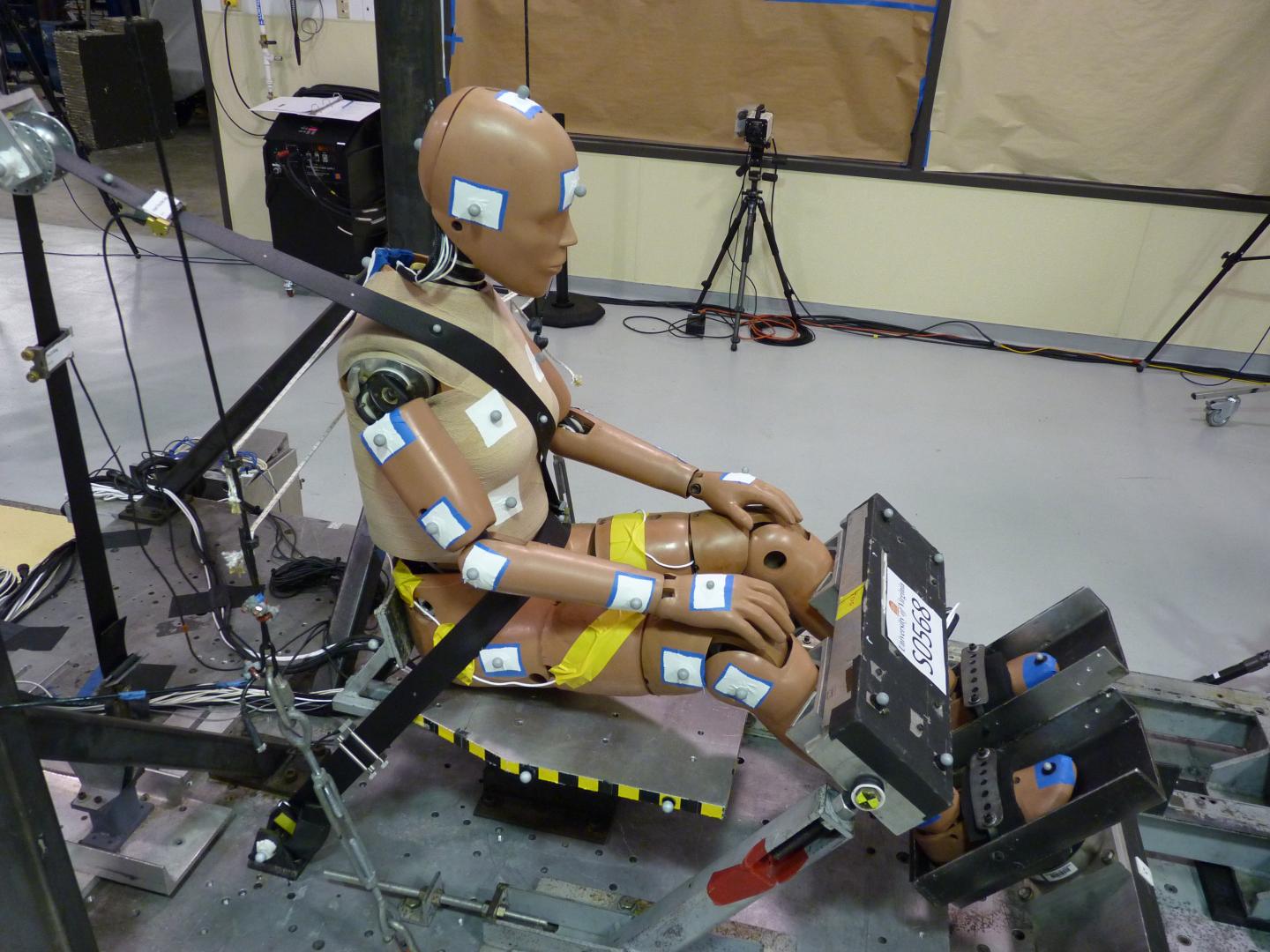
Credit: UVA Center for Applied Biomechanics
Cars built in the last decade have been shown to be safer than older models, including in the most common types of crashes – frontal collisions. However, a new study conducted by researchers at the University of Virginia’s Center for Applied Biomechanics shows that women wearing seat belts are significantly more likely to suffer injury than their male counterparts.
Belted female auto occupants have 73% greater odds of being seriously injured in frontal car crashes compared to belted males (after controlling for collision severity, occupant age, stature, body mass index and vehicle model year). The difference in risk is greatest for injury to the lower extremities, but also occurs with several other types of injury.
“Until we understand the fundamental biomechanical factors that contribute to increased risk for females, we’ll be limited in our ability to close the risk gap,” said Jason Forman, a principal scientist with the Center for Applied Biomechanics. “This will take substantial effort, and in my view the National Highway Traffic Safety Administration does not have the resources needed to address this issue.”
Additionally, vehicle occupants age 66 and older continue to be particularly susceptible to thoracic injury, likely resulting from increased fragility of the ribcage with advanced age.
The good news is that newer automobiles have tended to exhibit a decreased risk of injury overall. Specifically, risk has decreased for skull fractures, cervical spine injury and abdominal injury. Injury risks to the knee-thigh-hip region and the ankle are also significantly reduced. The risk of sternum fractures and serious rib fractures, however, has not been significantly reduced.
The study, published this week in the journal Traffic Injury Prevention, is an analysis of crash and injury data compiled from the National Automotive Sampling System Crashworthiness Data System for the years 1998 to 2015. These data come from a sample of police-reported crashes in the U.S.
“For belted occupants in frontal collisions, substantial reductions in injury risk have been realized in many body regions in recent years,” Forman said. “These results provide insight into where advances in the field have made gains in occupant protection, and what injury types and risk factors remain to be addressed.”
This study focused on frontal-impact crashes with belted occupants, aged 13 and older. The data included nearly 23,000 front-end crashes involving more than 31,000 occupants, and a nearly equal number of females and males. Pregnant women who were past the first trimester were not included.
###
UVA’s Center for Applied Biomechanics performs fundamental research related to injury biomechanics, including injury causation, risk factors, prediction and prevention.
Media Contact
Fariss Samarrai
[email protected]
Original Source
https:/
Related Journal Article
http://dx.



